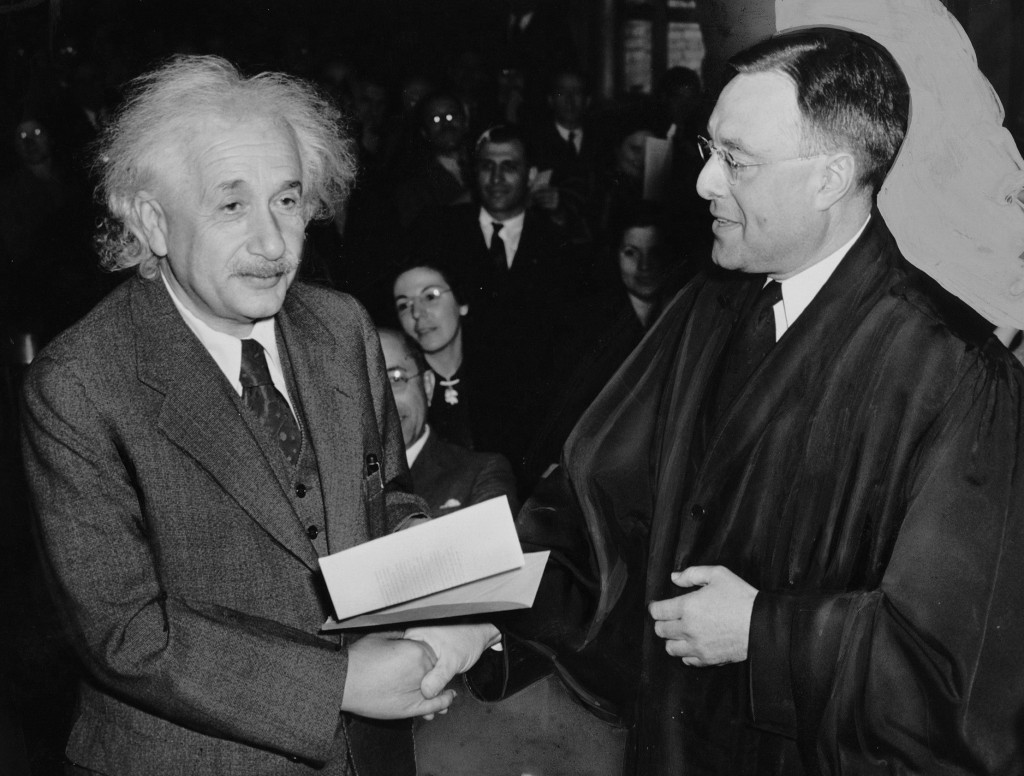
Have you got a growth mindset and motivation button that is helping you get out of your own way? Albert Einstein was not a straight ‘A’ grade student in school. The myth is that to be a great thinker, a world-class performer, successful business person, scientific genius or top producer and contributor to society you must excel in school.
Now according to Bestchild research:
…after a few years of research “A” students are no more successful than “C” students once they’re in the real world. Great achievers come from various backgrounds: science, activists, politics, law, medicine, entertainment, the arts, and athletics. But being a great student or showing a gift towards academics isn’t a prerequisite for high-achievement, success and especially – being happy.
Even more interesting is to see how the trouble-makers and rebels of the classroom really shine when they learn to pursue their fascinations, focus their energy and intentions in non-academic settings. It seems that Rebels and Genius are tied together simply due to their non-conventional thinking.
Now here Albert Einstein was reputed to hold his teachers in contempt and regularly played tricks and shenanigans in class. Finally as a result of his disruptive antics and stunts he was expelled from school.
So what was it about Einstein and his temperament that made him excel so dramatically in later life? It has been called a growth mindset and traits of the same characteristics are also visible in Richard Branson and many others.
Growth mindset and motivation and being a C grade student
A passionate child development researcher from Bestchild had this to say when he got involved with a local college.
One of the most illuminating conversations I’ve ever had was with a college president and the college’s endowment chairperson. We were talking about how to target fund-raising and refine our message so that the alumni would feel more connected and have a better sense of the difference their financial contributions would make to future generations.
It got very interesting when the president said, “The ‘C’ students are the owners of companies, that includes students who didn’t ever graduate. The ‘B’ students are generally working for the ‘C’ students or they’re lawyers. And most of the ‘A’ students are professors, are in academia and some are doctors. We want to target the ‘C’ student they have the most to contribute.”
Now that is a very markable acknowledgement. The one’s that did less well at school were one’s that founded companies to meet a need, and the one’s that did better at school worked for them in key roles. But how true is this observation? What was it based upon?
I asked how they knew this and they told me they’d “studied the alumni for years” and the incomes remained consistent. Wow! But that got me to thinking about a good deal of the great achievers in history. Scientists, musicians, true political leaders and business tycoons didn’t finish college, some didn’t finish high school. Historically the founders of Fortune 500 Companies (certainly not all) didn’t finish college; most did very poorly in school. Many, many of them started pursuing their passions at some point, and in true ADD fashion, just didn’t give school another thought.
Nearly all Fortune 500s are run by CEOs that have an academic pedigree a mile long, but those aren’t the founders, they didn’t start the company. Certificates and degrees make stockholders comfortable but they don’t mean a thing when you’re creating something, working passionately toward your own interests.

So is this the nature that can be seen in Einstein too. Not so good at school but passionate about physics and the workings of the universe. Is this growth mindset one of attitude more than anything else?
Over a century ago, legendary psychologist and philosopher William James said, “the greatest discovery of my generation is that a human being can alter his life by altering his attitudes.”
Are these the marks of the likes of Einstein, Branson, Thomas Edison, Walt Disney and Winston Churchill to just name a few with the same characteristics?
It can be like watching a game at play, so when it comes to sport we may come to see this growth mindset more clearly.
According to Southwick a sports and American football examiner:
…when it comes to maximizing our potential in sports, there is a central attitude that stands out above all others. World-renowned Stanford University Psychologist, Carol Dweck, calls this attitude the “growth mindset.” Individuals who embody a growth mindset are those who believe that ability is developed, not inherited.
Is this the Einstein approach of tirelessly developing, moving forward and forever growing?
Growth mindset types believe that “practice makes perfect.” They believe in their potential to develop as they put forth effort and stretch themselves.

So what is the opposite of this?
Despite the common sense appeal of this way of thinking, most of society has a “fixed mindset.” This mindset believes the phrase “you’ve either got it, or you don’t.”
Do you find yourself using this as an excuse for giving up on a thing or two. I know I recognise this in more ways than one.
We all know people who think this way. Many of us have had coaches, or teachers, who have told us that no matter what we do, we will never be able to reach the same levels of achievement as those who were born with all the right tools. One glaring problem with the fixed mindset is that it is scientifically unfounded. Modern research has proven that traits and abilities are moldable throughout life.
Now to acknowledge that all things are moldable through out life bring a whole new perspective on the situation, just the same as Einstein’s late in life successes and achievements.
Traits that used to be thought of as permanent, such as IQ, emotional dispositions, and capacity to develop skill, are now shown to be capable of modification.
So individuals that take on a fixed mindset are not able to tap into a human beings’ capacity for change. How many times have you heard the phrase: “Oh, I’m too old to try anything else.”
Is this fixed mindset thinking? Is this when we lock ourselves, firstly mentally, into a small limited box? What if we adopted the approach that anything can be developed, anything can be moldable.
Studies by Dweck and others have shown that individuals with a fixed mindset are less ambitious and hard working, less resilient to failure, less confident, and less successful in general than their growth mindset counterparts.
Whatever your vision, dreams or aspirations may be, you have the capacity to become the type of person who can accomplish your goals, accomplish whatever you want to. Does it take effort?
Yes, it will take untold hours of toil under proper instruction, but you can do it! The first step is to adopt a growth mindset by understanding that wherever you may be at this moment, you have the capacity to develop yourself into a winner.
To be moldable the choice is yours. Get the attitude right, stop listening and repeating those victim stories of defeat in your own head. Even stop listening to the victim stories others put upon you. You can have the growth mindset and motivation if you choose to.
You can have the freedom to be the growth minded Einstein of the 21st century in whatever way you choose. The only limitation is between your ears.
Here’s a way you can help…
Click like and share if you think more people need shake free from a fixed mindset.
Tweet this post if developing a growth mindset and motivation has already touched your life in one way or another.
